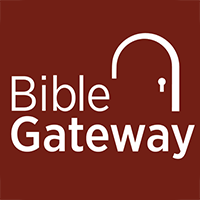There is no phrase "YHVH, the Son."
Do you really think we should be making things up and then back-reading them into scripture? I guess we hit the exegesis eisegesis tumbleweed, but not before the "adding things in" maelstrom.
Now first off, I am NOT a scholar in any language (even my own) and have never claimed to be.
Then one should stop putting forth doctrinal claims that are based upon language... here's an example of what I mean:
In the Hebrew the "me" which you say could be Isaiah is not even in the text (it does not exist except in the English translation)
If you had wanted to say "God told me" this, then say "God told me."
Calvinism, ... a Pastor Richards (a Pentecostal) and then ... Bishop Chamberlain of the Evengelical Free Church. ... (Rashi and Manimonides) that these passages referred to the Prophet.
Okay, so you embraced an interpretation told to you by men. That wasn't the issue I broached, and it would be ridiculous of me to try and have a discussion with Calvin, Richards, Chamberlain, Rashi and Manimonides. From such a perspective, one can make an extremely compelling case that the reference in Isaiah was to himself and the reference in Zechariah was to the Messiah, meaning that all five of these people were wrong.
That's why we discuss theological viewpoints.
But in our discussion, you resorted to a
linguistic proof that you've been unable to support... but I see you're about to try(?)
Finally the how you would see this "me" as the same was not related to the fact that in Isaiah it is implied
Again, that's a linguistic statement. If you are unable to read Hebrew, or provide a source reference from someone who can read Hebrew, then your claim ( "the me in Isaiah is implied") came out of the bowels of your imagination, a claim that no other Hebrew scholar would agree with by the mere fact that all of the translations provided by biblegateway and biblehub, including their interlinear, show otherwise.
Now could they all be wrong? YES. But one would need to provide an extraordinary
linguistic proof to show this. I have found a number of passages in the New Testament where every English translation IS wrong, but my extraordinary claims can, and have been, supported by extraordinary linguistic proof, to the extent that ... (how to say this) ... I've not lost yet in any discussion with professors of Greek. But again, this is with regards to translation and claims based upon language, not interpretations.
It is NOT a fact that "in Isaiah it (this "me") is implied." If it is, show this AS a fact.
but that you would support the standard interpretation
I haven't made ANY statement of interpretation, except perhaps that verse sixteen in Isaiah 48 starts a new prophetic utterance.
Look, let's track this back to our initial starting point. I had stated that I'm fairly sure the prophet Isaiah was speaking of himself. Here... let me provide you with the quote...
I'm fairly sure the "me" in
Isaiah 48:16 is Isaiah...
You then claimed the "me" did not even exist in the initial Hebrew text, but still have not provided proof for this claim.
So first I will use the English translation offered at Chabad.org
Well, it would be appreciated next time if you actually provide a link to that which you are quoting.
But drilling into the text of Zechariah is rather useless to resolve your claim that the "me is implied" in Isaiah. As a matter of FACT, your OWN source (chabad.org) provides the following as an English translation for the text of Isaiah -
( Isaiah 46:18 Chabad.org) Draw near to Me, hearken to this; in the beginning I did not speak in secret, from the time it was, there was I, and now, the Lord God has sent me, and His spirit.
LINK (please scroll down).
When you are willing to admit that you cannot support your claim of the "me" being "implied" in Isaiah, and accept the text as translated because you can provide no other reason to translate it differently,
then perhaps you and I can move on to discussing (and in another thread) the interpretation of these verses and whom the "me" might be. But one cannot claim revelation as a basis to
change the text that was written, no matter how euphoric you felt when ...
Now I was led to this revelation by a few things. First the Lord showed me...
When did the Lord show you the "me in Isaiah is implied"?
Rhema
btw...
the Lord showed me the truth in
Micah 5:2 that this human baby being born in Bethlehem was in fact the Eternal One
According to a number of translations, your "Eternal One" had an origin.
(Micah 5:2 NRSV) But you, O Bethlehem of Ephrathah, who are one of the little clans of Judah, from you shall come forth for me one who is to rule in Israel, whose origin is from of old, from ancient days.
(Micah 5:2 Chabad.org
LINK) And you, Bethlehem Ephrathah-you should have been the lowest of the clans of Judah-from you [he] shall emerge for Me, to be a ruler over Israel; and
his origin is from of old, from days of yore.
There are twenty (20) versions here that say "origin"...

www.biblegateway.com
(And
that would be an interesting conversation.... the Eternal One having an origin.)
